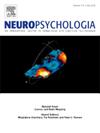Manipulating memory processing during sleep to explore the critical duration of reactivation events
IF 2
3区 心理学
Q3 BEHAVIORAL SCIENCES
引用次数: 0
Abstract
Newly encoded memories are reactivated and consolidated during sleep. However, how the reactivation of a specific memory unfolds over time is poorly understood. What are the temporal dynamics of a single reactivation event within a period of sleep? Does extending a single reactivation opportunity translate to stronger memory benefits? We explored these dynamics by utilizing targeted memory reactivation (TMR), a technique that biases the consolidation of memories via the unobtrusive presentation of memory-associated cues during sleep. Participants learned the on-screen positions of sixty objects, each linked with a unique sound (e.g., cat - meow). Some sounds were then presented during non-REM sleep, with the duration allotted for reactivation causally controlled by varying the timing of the interstimulus interval. TMR did not lead to uniform improvement in memory, and no differences were observed between objects allotted short (2.5 s) and long (7.5 s) reactivation windows. However, memory for objects allotted short windows was impacted by TMR in an encoding-strength-dependent manner, with poorly encoded objects benefiting the most. Classification models trained on EEG data revealed memory reactivation that was time-locked to sound onset during sleep, and this measure of reactivation was linked with memory gains one week later. We did not find evidence for reactivation that extended beyond the time window immediately after sound onset (<2 s). Although our results are not entirely conclusive, they suggest that the critical processes supporting memory consolidation conclude within <2 s after reactivation onset and that extended reactivation windows do not confer additional benefits.
操纵睡眠期间的记忆处理,以探索重新激活事件的关键持续时间
新编码的记忆在睡眠中被重新激活和巩固。然而,特定记忆的重新激活是如何随着时间的推移而展开的,人们知之甚少。在一段睡眠时间内,单个再激活事件的时间动态是什么?延长一次再激活的机会是否会带来更强的记忆效益?我们通过使用目标记忆再激活(TMR)来探索这些动态,TMR是一种通过在睡眠中不显眼地呈现与记忆相关的线索来促进记忆巩固的技术。参与者学习了60个物体在屏幕上的位置,每个物体都有一个独特的声音(例如猫叫)。然后在非快速眼动睡眠期间播放一些声音,通过改变中间刺激间隔的时间来控制分配给重新激活的持续时间。TMR并没有导致记忆的均匀改善,在分配短(2.5 s)和长(7.5 s)再激活窗口的对象之间没有观察到差异。然而,分配短窗口的对象的内存受TMR的影响是一种编码强度依赖的方式,编码较差的对象受益最大。在脑电图数据上训练的分类模型显示,记忆的重新激活是在睡眠中被时间锁定的,这种重新激活的测量与一周后的记忆增益有关。我们没有发现证据表明,在声音响起后(<;2秒),再激活的时间窗会立即延长。尽管我们的研究结果并非完全结论性的,但它们表明,支持记忆巩固的关键过程在再激活开始后的2秒内结束,延长的再激活窗口期并不会带来额外的好处。
本文章由计算机程序翻译,如有差异,请以英文原文为准。
求助全文
约1分钟内获得全文
求助全文
来源期刊

Neuropsychologia
医学-行为科学
CiteScore
5.10
自引率
3.80%
发文量
228
审稿时长
4 months
期刊介绍:
Neuropsychologia is an international interdisciplinary journal devoted to experimental and theoretical contributions that advance understanding of human cognition and behavior from a neuroscience perspective. The journal will consider for publication studies that link brain function with cognitive processes, including attention and awareness, action and motor control, executive functions and cognitive control, memory, language, and emotion and social cognition.
 求助内容:
求助内容: 应助结果提醒方式:
应助结果提醒方式:


